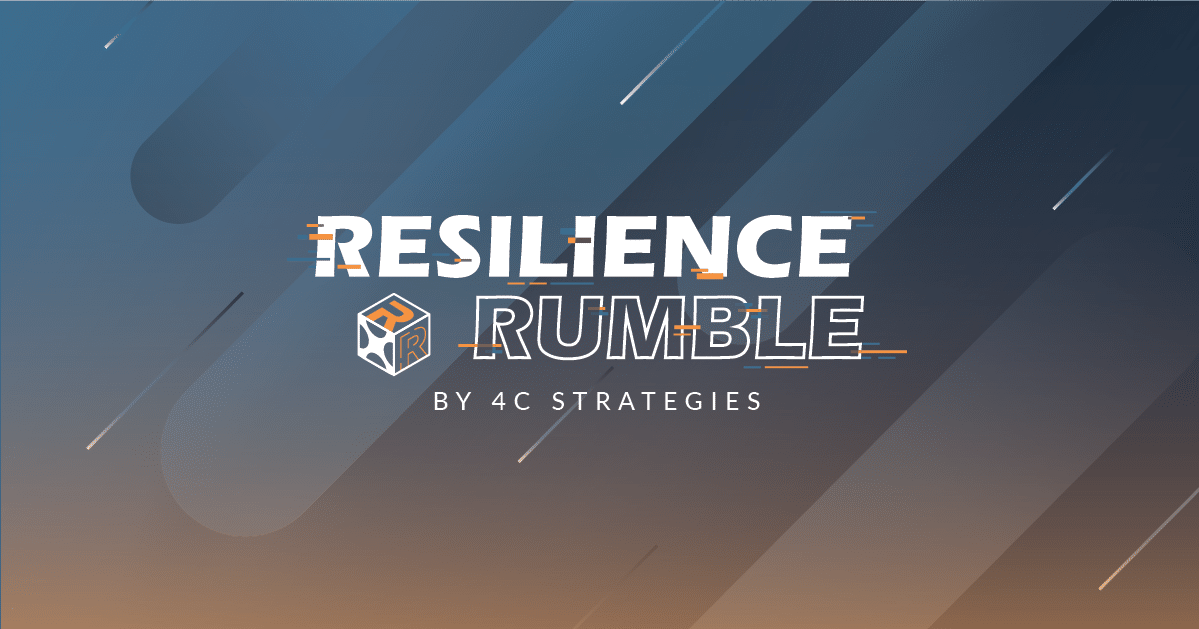- Don’t know where to start? Here’s 3 key factors for Climate Risk
- Not climate reporting-ready? Find 3 important reporting standards to know
- Short on time? Go straight to Cecilia’s summary
2022-07-06
Author: Cecilia Skarne
Bio: Cecilia Skarne is a Consultant and active member of the United Nations’ E-STAG, helping organizations build climate resilience and net-zero strategies through digital innovation.How can we turn Climate Risk into business opportunity?
4C Strategies’ Cecilia Skarne shares her analysis of the current Climate Risk landscape and offers a view into how businesses can integrate climate-related risk management into business process
Nature’s impact on business value is inarguable
Alarmingly, studies indicate that we are on track to exceed the 1.5°C warming threshold within the next five years, while human activities continue to contribute to the alarming decline of nature.
Just as investors and other stakeholders are holding companies accountable for reducing greenhouse gas emissions, it’s becoming evident that businesses will soon be expected to go beyond that and address a broader range of nature-related risks.
I cannot overstate the importance of Climate Risk on long-term enterprise value, the global economy, and society as a whole. The degradation of natural systems poses a genuine threat to organizations worldwide, as their survival depends on healthy ecosystems.
These nature-related risks encompass a wide array of environmental and ecological impacts that are linked to a mind-boggling $44 trillion in economic value generation, representing nearly half of the global GDP according to the World Economic Forum. Industries such as oil and gas, food and beverage, mining, and transportation are particularly vulnerable, as the risks they face currently outweigh the available mitigation options.
Every industry faces climate-risk
However, nature-related risks affect all businesses.
The financial risks associated with nature loss are extensive and multifaceted, ranging from potential asset damage, disruptions to production and supply chains due to ecosystem degradation, and escalating policy, legal, and market risks. The imposition of financial penalties for harming nature is also becoming increasingly tangible.
With this in mind, I believe it is crucial for business leaders to incorporate nature, in addition to climate, into their resilience planning.
3 key factors for Climate Risk
To realize the positive value of nature and address these risks effectively, businesses must consider the following key factors:
1. Understand the broader set of risks to your business
It is essential to comprehend how nature interacts with your business throughout the entire value chain. This understanding aligns with the requirements set by the TNFD.
While businesses often focus on risks within their operational boundaries, the impacts of nature loss and climate change extend beyond those boundaries. Therefore, a comprehensive assessment of risks must take this broader perspective into account.
2. Explore opportunities
Forward-thinking companies are reimagining their supply chains to enhance resilience, transparency, and mitigate disruptions. Identifying nature and climate hotspots where negative impacts occur can also reveal opportunities for operational efficiencies, leading to carbon and cost savings.
3. Plan for the worst-case scenario
Disruptions to the natural environment can impact not only your operations but also your locations, employees, customers, and clients. It is crucial to have a plan in place to support the locations and people your business relies on. Testing crisis management plans becomes crucial, as vulnerabilities may not be immediately apparent to the business.
How far are you in your sustainability journey?
Meet the climate-related business challenges ahead with Exonaut Resilience. Learn more about the user-friendly, end-to-end platform designed to help you tackle the challenges of climate change.
Building Climate Resilience is mission-critical
Building resilience to climate change and nature loss is vital for businesses. They should explore alternative suppliers or routes for critical products and services and develop response plans to ensure uninterrupted operations. By integrating nature-conscious processes into strategy, organizations can mitigate risks, capitalize on opportunities, and contribute to sustainability.
Climate technology takes center-stage
The Exonaut Climate Resilience platform provides a comprehensive solution for proactive climate resilience and sustainability. It assists businesses in reducing carbon emissions, adapting to climate change impacts, and leveraging climate-related opportunities. By incorporating nature into their strategies, organizations can mitigate risks, seize opportunities, and work towards a sustainable future.
The establishment of standards for managing nature-related risks is following a similar trajectory as those set for addressing climate change. These reporting standards are crucial in driving transparency, accountability, and action in managing nature-related risks. They provide guidance for businesses to effectively assess, disclose, and address their impact on the environment and ecosystems.
To provide a clearer overview, I’ve listed below some of the relevant reporting standards we can help you to report against:
1. Taskforce on Climate-Related Financial Disclosure (TCFD)
This framework focuses on disclosing climate-related risks and opportunities in financial reporting.
2. Taskforce on Nature-Related Financial Disclosure (TNFD)
Building upon the TCFD framework, the TNFD aims to extend reporting requirements to include a broader range of nature-related risks and opportunities.
3. Corporate Sustainability Reporting Directive (CSRD)
Within the European Union, this directive mandates large companies to regularly report on their environmental and social impact activities, including major environmental factors and dependencies on climate, air, land, water, and biodiversity.
Are you report-ready?
Learn the 10 steps to become climate report-ready, how to identify emissions Scopes across your organization, and take advantage of new climate-related business opportunities.
In summary: Integrating business and nature is our best hope
Nature holds a significance that goes beyond mere economic value, encompassing intrinsic worth that cannot be measured in monetary terms.
It contributes to the well-being of communities by fostering a sense of connection and belonging. Nature provides solace, inspiration, and cultural significance, enriching the lives of individuals and communities alike.
Natural ecosystems, such as wetlands and forests, play a crucial role in mitigating disasters. They act as natural buffers, absorbing and minimizing the impact of floods, storms, and landslides. Embracing nature-based solutions, like green infrastructure, allows us to manage disaster risks sustainably while enhancing community resilience.
Protecting natural habitats is essential for maintaining ecosystem balance and providing valuable resources for human communities. This also ties in with species conservation efforts contribute to the long-term stability and sustainability of our environment. By valuing and integrating nature into our business strategies, I believe we can build a more resilient, prosperous, and sustainable world for ourselves and future generations. Let us embrace our responsibility and take action today.
How to build Cyber-Resilience
4C Strategies integrate IT risk, disaster recovery and crisis management, to go beyond mere technological solutions towards an organisation-wide culture of cyber resilience. Book a free consultation with one of our consultants to discuss your requirements.









